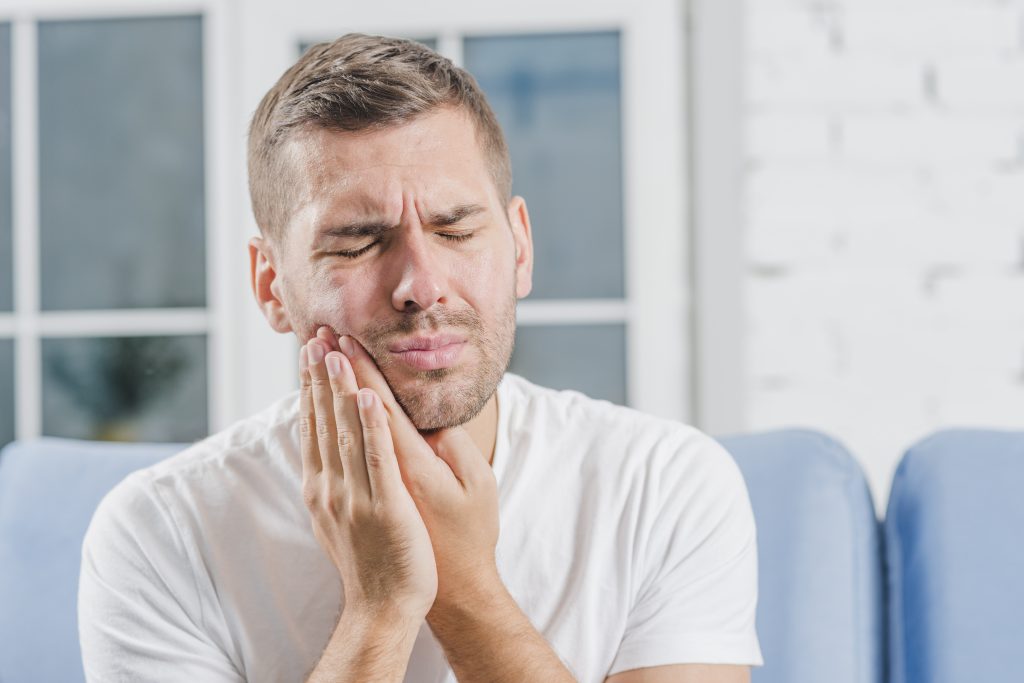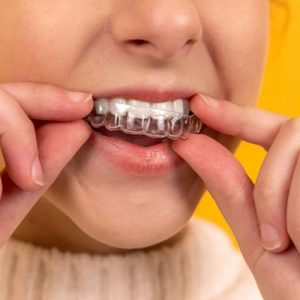As careful as you might be when it comes to looking after your teeth, accidents can happen.
And whilst it’s more common for younger patients to experience dental emergencies, they can happen to anyone. Symptoms of dental emergencies aren’t always as obvious as a chipped or broken tooth either. At times, toothaches or pains can mask more severe dental problems which need immediate attention.
Knowing what to do when you’re faced with throbbing pain or when you’re experiencing an injury resulting in a knocked-out tooth, is critical to your dental health. So, what do you do when you’re faced with a dental emergency?
What is considered a dental emergency?
According to NSW Health, symptoms of a possible dental emergency include:
- dental trauma or injury (caused by a sporting injury, fall or motor accident)
- swelling of your face or neck
- swelling in your mouth
- bleeding from your mouth that won’t stop
- difficulty opening your jaw and/or swallowing.
In other circumstances, if you know your symptoms and are able to identify the type of dental emergency, here’s what to do.
Knocked out tooth
In the event of a knocked-out tooth, it’s recommended by the Australian Dental Association to locate the tooth, handle it with care, and avoid touching its roots. If dirty, gently wipe the tooth with a cloth and either place it back into the empty socket or hold it in your mouth between your cheek and gums. Doing so will ensure your saliva’s enzymes keep the knocked out tooth alive until you see your emergency dentist, ideally within 15-30 minutes.
If inserting the tooth back into your mouth is not an option, store it in a small container submerged in cold milk to keep it moist. It’s important not to wrap the tooth in a tissue or cloth as this will dry out the tooth.
If you or someone you know has a knocked-out tooth, it’s important to remain calm and act immediately. The sooner you can visit your dentist, the greater the likelihood that they will be able to reinsert and preserve your tooth.
Chipped or broken tooth
The enamel on your teeth may be some of the toughest tissue in your body but that doesn’t mean it’s not susceptible to chipping or breaking. If you have a chipped or broken tooth, rinse your mouth with warm water and apply a piece of gauze to the area if there are signs of blood. When the bleeding stops, apply a cold compress to the outside of your cheek or lip to keep any swelling down and temporarily numb the pain.
It’s important to see your dentist as soon as possible to relieve pain caused by a chipped or broken tooth. If the chip is significant it can not only impact your tooth’s nerve but can lead to an infection or abscess if left untreated.
Abscessed tooth
If you experience a fever associated with tooth sensitivity, a persistent toothache, and swelling of your face, it’s likely you have an abscessed tooth – a buildup of pus inside the teeth or gums that if burst, can cause a severe blood infection.
To treat an abscessed tooth, rinse your mouth with mild saltwater several times throughout the day to reduce the pain and help draw pus to the surface until you can see your dentist.
How to avoid dental emergencies
To help prevent dental emergencies, stay proactive with your oral hygiene routine, and regularly visit your dentist for check-ups. During these visits, your dentist will check for loose fillings and crowns as well as signs of decay, infection, and gum disease to avoid serious risks to your dental health.
If you play contact sports, you increase your risk of dental emergencies and other injuries such as concussions and facial lacerations. By protecting your teeth with a custom fit sports mouthguard, you can not only prevent dental emergencies from blows to the mouth but also more extensive and costly procedures in the future.
If you have a dental emergency, call Whites Dental Care immediately
If you’re experiencing pain, don’t wait, contact the experienced team at Whites Dental Care immediately for a same-day appointment to treat your pain fast. Accidents can happen at any time, so if your dental emergency happens outside of office hours, the team will accommodate your needs as soon as possible.



